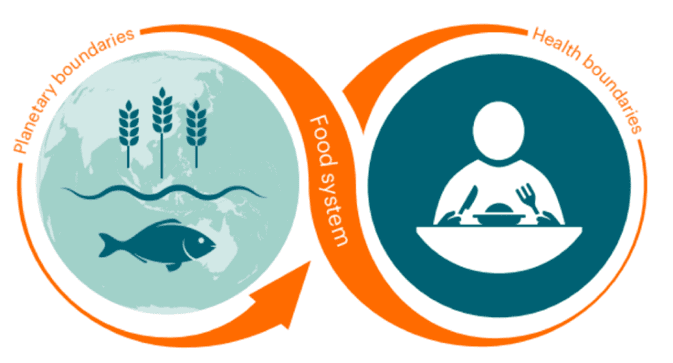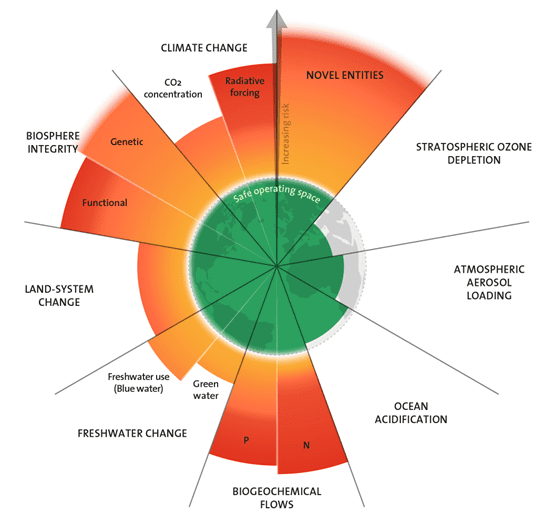
The Importance of Sustainable Culinary Entrepreneurship
The plant-based food movement signifies a profound change in how people approach their dietary habits, recognizing the interconnectedness of food choices, personal health, and the well-being of the planet.
As awareness grows regarding the impact of dietary decisions on both individual health and the sustainability of essential resources like water, land, and climate, specialized companies in plant-based products are finding unprecedented opportunities. In 2023, the number of Americans embracing plant-based and vegetarian diets exceeded 26.5 million, a significant leap from the 290,000 reported in 2004. Personal habit changes seem to be going hand in hand with common-sense large-scale changes to the system. Overall, sustainable culinary entrepreneurship aligns economic success with social and environmental responsibility, making it essential for building a more equitable, healthy, and resilient food system.
We’ve put together some valuable insights on Sustainable Culinary Entrepreneurship. Read from the beginning or use the index below.
- The Cost of Food is Rising.
- What Is the Planetary Health Diet?
- What Are the Planetary Boundaries?
- Explore the Intersection of Planetary Health and Its Boundaries.
- Why study Food Business and Culinary Entrepreneurship at Unity Environmental University?
- Related Jobs

Discover how to promote a healthier food system with our BS in Food Business and Culinary Entrepreneurship.
The Cost of Food
As a nation, our annual expenditure on food amounts to $1.1 trillion. However, when considering the broader effects of the food system on various aspects of our society, such as escalating healthcare expenses, climate change, and the decline of biodiversity, the overall cost increases. Factoring in these additional expenses, the true cost of food reaches at least $3.2 trillion per year, surpassing three times the present spending on food (Rockefeller Foundation, 2021).
The Planetary Health Diet
The Planetary Health Diet concept is based on maintaining human and ecosystem health alike. Figure 1 below illustrates this connection with the food system being the enabler and mediator between planetary and human health boundaries. It reiterates an insight that had previously been conveyed by the Double Pyramid Model (diet impact on personal health and ecosystem health) of the Barilla Foundation, which illustrated how peasant-inspired locavore diets such as the Mediterranean Diet cause the least environmental impact, while exerting positive effects on human health.

Figure 1: Infinity symbol signifying the linkage between human and ecosystem health (Willett et al., 2019). Image credit: Courtesy of EAT-Lancet Commission Food, Planet, and Health Report.
The planetary health diet concept proposes flexitarian eating habits that include global dietary recommendations that can be regionally adapted. A typical meal based on the planetary health diet can be broken down by volume as follows: half of the plate consists of fruits and vegetables, while the other half contributes to the calorie supply, primarily in the form of whole grains, plant protein sources, unsaturated plant fats, and optionally a very small amount of animal protein sources.
Planetary Boundaries
Developed by the EAT-Lancet Commission, the planetary health diet is a model based on the notion of safe operating spaces for food systems within the planetary boundaries (see Figure 2). Planetary boundaries, as proposed by Johan Rockström and his colleagues, are nine critical Earth system processes that, if pushed beyond certain limits, could lead to abrupt and irreversible environmental changes, threatening the stability of the Earth’s systems.
These boundaries include aspects like climate change, biodiversity loss, land use change, freshwater use, and more. The idea is that staying within these boundaries is crucial for maintaining Earth’s stability and the conditions that support life as we know it (see Figure below). This means that a global focus on climate change alone is not sufficient for increased sustainability. Instead, understanding the interplay of boundaries, especially climate, and loss of biodiversity, is key in science and practice. Global food and farming systems are interlinked with all nine planetary boundaries.

Figure 2: The Planetary Boundaries framework (Stockholm Resilience Center, 2023). Image Credit: Azote for Stockholm Resilience Centre, Stockholm University. Based on Richardson et al. 2023, Steffen et al. 2015, and Rockström et al. 2009.
The concept of planetary boundaries and the planetary health diet are both deeply intertwined with the broader idea of sustainability and ensuring the long-term health of our planet.
The Intersection of the Planetary Health Diet and Planetary Boundaries
The planetary health diet directly addresses several of the planetary boundaries. Here are a few specific boundaries the planetary health diet helps address:
- Climate Change: Animal agriculture is a significant contributor to greenhouse gas emissions, particularly methane and nitrous oxide. By reducing the consumption of meat and dairy, the planetary health diet can help lower these emissions and mitigate climate change.
- Biodiversity Loss: Large-scale animal agriculture often leads to deforestation, habitat destruction, and loss of biodiversity. Shifting towards a more plant-based diet reduces the pressure on land for livestock grazing and feed production, helping to preserve biodiversity.
- Land Use Change: Livestock farming requires vast amounts of land for grazing and feed production, leading to deforestation and land degradation. By reducing meat consumption and promoting plant-based foods, the planetary health diet can help minimize the need for agricultural expansion into natural ecosystems.
- Freshwater Use: Animal agriculture is water-intensive, requiring large amounts of water for livestock drinking and irrigation of feed crops. By shifting towards plant-based foods, which generally have a lower water footprint, the planetary health diet can help conserve freshwater resources.
In summary, the planetary health diet offers a dietary framework that aligns with the goal of staying within planetary boundaries by addressing key environmental challenges such as climate change, biodiversity loss, land use change, and freshwater use. By promoting a more sustainable approach to food production and consumption, it represents a crucial step towards achieving a healthier planet for future generations.
Are you ready to embark on a culinary journey where creativity meets sustainability and become a future food leader ready to innovate and tackle waste while nourishing the planet? At Unity Environmental University we have launched a new Baccalaureate degree program called “Food Business & Culinary Entrepreneurship” that wants to grow the next crop of food business and culinary leaders committed to regenerative food systems. Find out more about these new programs and how you can begin your journey of discovery with Unity on our Distance Education page.
Why Study Food Business and Culinary Entrepreneurship At Unity Environmental University?
Unity is America’s Environmental University, fully dedicated to delivering actionable degrees in sustainability and environmental sciences. Our mission is to develop a green workforce for global businesses across industries.
Environmental stewardship, social sustainability, and corporate citizenship are at the heart of Unity Environmental University. Students in our tourism and hospitality programs will draw from a variety of knowledge areas, including business, tourism and hospitality, social justice, sustainable development, and ecology. As you study tourism and hospitality, you’ll take a deep dive into regenerative practices to be ready to help shift the travel industry toward a more regenerative future.
You’ll graduate with professional skills needed by hiring managers.
Our courses are closely tied to professional skill development. You’ll graduate with the content knowledge you need to work in tourism and hospitality, as well as the skills desired by employers. As an example, students will learn about regenerative travel experiences and develop their own strategic plan to incorporate regenerative principles into a business idea.
Study from anywhere in the world.
As an online asynchronous learner, you will have the freedom to travel personally while completing your coursework, adding to your perspective on regenerative travel firsthand. Whether you travel while studying or not, this program will help you see the impact of travelers on many different types of communities from resorts to off-the-road towns and villages. Either way, you will complete this program with a strong understanding of the breadth of tourism and hospitality industries worldwide, and with an ability to apply the lessons of sustainability to any location in which you might work.
Related Jobs
| Job Types | Median Salary | Growth |
| Chefs and Head Cooks direct and may participate in the preparation, seasoning, and cooking of salads, soups, fish, meats, vegetables, desserts, or other foods. May plan and price menu items, order supplies, and keep records and accounts. Examples of these roles include: Banquet Chef, Certified Executive Chef (CEC), Chef, Cook, Executive Chef (Ex Chef), Executive Sous Chef, Head Cook, Kitchen Manager, Pastry Chef, Sous Chef. | $58k | +8% |
| Dieticians and Nutritionists plan and conduct food service or nutritional programs to help people lead healthy lives. Examples of these roles include: Dietitians and nutritionists work in many settings, including hospitals, nursing homes, clinics, cafeterias, and for state and local governments. | $70k | +7% |
| Food Service Managers plan, direct, or coordinate activities of an organization or department that serves food and beverages. Examples of these roles include: Banquet Manager, Catering Manager, Food and Beverage Director, Food and Beverage Manager, Food Service Director, Food Service Manager, Food Service Supervisor, Kitchen Manager, Restaurant General Manager, Restaurant Manager. | $63k | +1% |
About Unity Environmental University
At Unity, sustainability isn’t a buzzword. It’s the foundation of our entire approach, and has been for more than 50 years.
We apply sustainability principles to everything we do, from our properties around the State of Maine, to our online degrees offered to students everywhere, to our enrichment experiences and entrepreneurial endeavors at locations from northern Maine to Arizona to Brazil.
Engage with Unity Environmental University and you’ll start to ask tough questions, challenge the status quo, and envision new possibilities. If taking the lead in creating a more sustainable future sounds like the future you want, we can make it happen.
Degree Programs
Degree programs
to match your passion
Blog written by Dr. Sebastian Kretschmer





